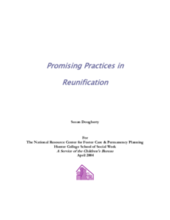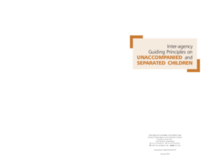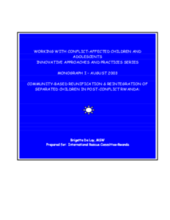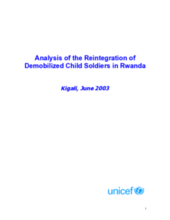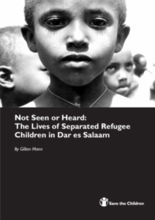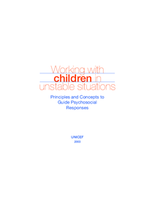Displaying 131 - 140 of 154
Core interagency resource on the principles of practice with separated and unaccompanied children. Includes prevention of separation, evacuation procedures, and tracing, reunification, and care arrangements.
A comprehensive framework to ensure that the rights and needs of separated children are effectively addressed. Guidelines aim to promote and support preparedness, coordination and good practice based on lessons learned. Addresses all aspects of an emergency from preventing separations, to family tracing and reunification, through to long-term solutions.
A list of US programs and program approaches that influence family reunification outcomes. Relevant for social workers, policy-makers, and others involved in foster care, after care, and family reunification.
This paper presents a set of global policy guidelines for the protection of children without parental care. It recommends the need for a global understanding of best practices within the legal framework of the UN Committee on the Rights of the Child.
Provides guidance on role of humanitarian agencies in ensuring protection and appropriate care provision for separated and unaccompanied childre, with a particular emphasis on preserving family unity and ensuring identification, tracing and reunification is pursued.
This paper hopes to contribute to a sorely under-documented field of how to reintegrate institutionalized children back into the community in a post-conflict environment.
This paper hopes to contribute to a sorely under-documented field of how to reintegrate institutionalized children back into the community in a post-conflict environment. It provides a brief description of IRC Rwanda’s Reunification and Reintegration Program for Unaccompanied Children, emphasizing its innovative nature and promising field methodologies. It includes a review of core principles and a programmatic overview of center and community-based work, outlining key steps in the process. It also provides a brief review of good practices and offer some points of reflection for future work with children in post-conflict situations.
Follow-up analysis of reintegration for demobilized child soldiers in Rwanda. Concludes with lessons learned for successful reintegration.
A study on the lives of separated refugee children in Dar es Salaam. The study highlights their experiences of abuse and discrimination, and their negative perception of refugee camps.
Discusses the psychosocial impacts of unstable situations on children and their families, with an emphasis on child development. Includes UNICEF’s position on policy and programming principles as well as strategies to address the psychosocial needs of children, families, and communities.



